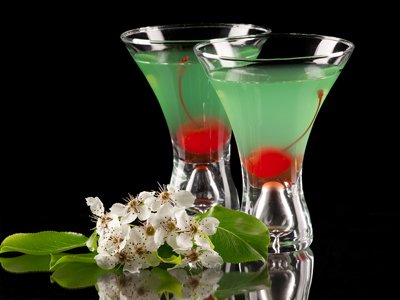To many people, alcohol represents a grown-up sort of treat. It is often a way to celebrate an accomplishment, big or small. So after a tough day at work a round of beers might be in order. Or a bottle of champagne may be uncorked to mark a friend’s engagement. A group of moms might meet at someone’s house to share glasses of wine along with stories of their toddlers’ antics that week. But are we now using our workouts as an excuse to drink too? Well, according to new research, people have an increased intake of alcohol on the days they are more physically active.
The study, which took place at the Feinberg School of Medicine at Northwestern University in Chicago, Illinois, found that individuals generally consume more alcohol on the days that they have been exercising than on non-workout days.1 Izadi, Elahe. “Working out? Drink! Your gyms days are also your booze days, study shows.” Washington Post. 23 September 2014. Accessed 28 September 2014. http://www.washingtonpost.com/news/to-your-health/wp/2014/09/23/working-out-drink-your-gym-days-are-also-your-booze-days-study-shows The subjects were 150 men and women between the ages of 18 and 89. They were instructed to keep a daily record of all of the physical activity they performed as well as all of the alcohol they drank. These logs were maintained for three periods of 21 days each at different times of the year.
None of the volunteers were especially heavy drinkers, commonly only having a drink or two a couple of times a week. However, on the days that the participants were exercising, they were more likely to consume alcohol compared to the days they were less active. The drink of choice on workout days was most frequently beer and, interestingly, the increases in drinking that went with exercise were equally prevalent among older and younger participants.
The results held up even when the scientists controlled for other factors that might be influential, including the day of the week. As the weekend approaches, most of us start socializing more, often beginning on Thursday nights. Therefore, a higher level of alcohol consumption was expected on Thursdays, Fridays, Saturdays, and Sundays as people may have more free time and fewer responsibilities, giving them a greater opportunity to go out and have a few drinks. But even when the researchers adjusted their figures to reflect these circumstances, it still remained apparent that the intake of alcohol was higher when the subjects had also worked out.
It is a bewildering phenomenon, particularly since we don’t tend to think of regular exercisers as especially big drinkers. While there are exceptions to every rule, you would think that people who work out are often are more health conscious than others and try to eat more nutritiously, avoid smoking, and drink alcohol in moderation or not at all. Then again, it is entirely possible that the study participants in this case are not dedicated exercisers, which may account for the discrepancy. If they are not working out daily, they may only visit the gym or squeeze in their activity once or twice a week.
Another possibility, though, is that the volunteers were rewarding themselves for a job well done when they do complete an exercise session. After all, scientists determined that the physical activity and the alcohol consumption were taking place on the same day, which presumably meant the subjects were working out at some point earlier in the day then having a few drinks later. So it is conceivable that after a successful workout, they felt entitled to enjoy a beer or two as a reward or felt they could safely add the calories after burning so many others.
Or perhaps, they were just trying to slake a thirst brought on by the workout…and felt that they deserved to do it with something they enjoyed more than plain, old, boring water.
At any rate, it is certainly fine for any legal adult to indulge in an alcoholic beverage from time to time, but keep in mind what you are trying to achieve by exercising in the first place. The added calories are empty ones, and alcohol is dehydrating, which is the last thing you want after sweating as you exercise. And the only type of alcohol that has been associated in any studies at all with some heart or digestive benefits2 Queipo-Ortuno, M.I.; et al. “Influence of red wine polyphenols and ethanol on the gut microbiota ecology and biochemical biomarkers.” American Journal of Clinical Nutrition. June 2012. Accessed 29 September 2014. http://www.ncbi.nlm.nih.gov/pubmed/22552027 is red wine–not the beer that most of the participants in this study favored–and even wine has very mixed results with as many negative findings as positive ones. Keep in mind that alcohol, regardless of its type, is a confirmed human carcinogen. Its consumption has been causally related with breast cancer for some time–and demonstrated yet again only a few weeks ago.3 Qian F, Ogundiran T, Hou N, Ndom P, et al. “Alcohol Consumption and Breast Cancer Risk among Women in Three Sub-Saharan African Countries.” PLoS One. 2014 Sep 8;9(9):e106908. http://www.ncbi.nlm.nih.gov/pmc/articles/PMC4157846 It has also been shown that even moderate drinking significantly reduces the structural integrity of the adult brain.4 M.L. Andersona, M.S. Nokiab, K.P. Govindarajuc, T.J. Shorsc. “Moderate drinking? Alcohol consumption significantly decreases neurogenesis in the adult hippocampus.” Neuroscience Volume 224, 8 November 2012, Pages 202–209. http://www.sciencedirect.com/science/article/pii/S0306452212008457 And, of course, as Jon Barron points out in Lessons from the Miracle Doctors, even the smallest amounts of alcohol are toxic to the liver.
So, although as an adult it is possible to drink “responsibly,” using a great, intense workout as an excuse to drink a lot is counterproductive and definitely not the best choice if you want to stick with a healthy lifestyle.
References
| ↑1 | Izadi, Elahe. “Working out? Drink! Your gyms days are also your booze days, study shows.” Washington Post. 23 September 2014. Accessed 28 September 2014. http://www.washingtonpost.com/news/to-your-health/wp/2014/09/23/working-out-drink-your-gym-days-are-also-your-booze-days-study-shows |
|---|---|
| ↑2 | Queipo-Ortuno, M.I.; et al. “Influence of red wine polyphenols and ethanol on the gut microbiota ecology and biochemical biomarkers.” American Journal of Clinical Nutrition. June 2012. Accessed 29 September 2014. http://www.ncbi.nlm.nih.gov/pubmed/22552027 |
| ↑3 | Qian F, Ogundiran T, Hou N, Ndom P, et al. “Alcohol Consumption and Breast Cancer Risk among Women in Three Sub-Saharan African Countries.” PLoS One. 2014 Sep 8;9(9):e106908. http://www.ncbi.nlm.nih.gov/pmc/articles/PMC4157846 |
| ↑4 | M.L. Andersona, M.S. Nokiab, K.P. Govindarajuc, T.J. Shorsc. “Moderate drinking? Alcohol consumption significantly decreases neurogenesis in the adult hippocampus.” Neuroscience Volume 224, 8 November 2012, Pages 202–209. http://www.sciencedirect.com/science/article/pii/S0306452212008457 |












Here’s a potentially simple
Here’s a potentially simple explanation. Those who are health conscious may find their enjoyment of beer diminished by the thought that it’s going straight to the waist line. So maybe the psychology works like this: The work out is payment in advance in terms of burning calories so that when you have your beer(s) you can enjoy them knowing that you’ve at least off set the weight gain effects to some degree. As a guy who likes to workout and also likes beer, that thought has occurred to me on more than one occasion! Cheers